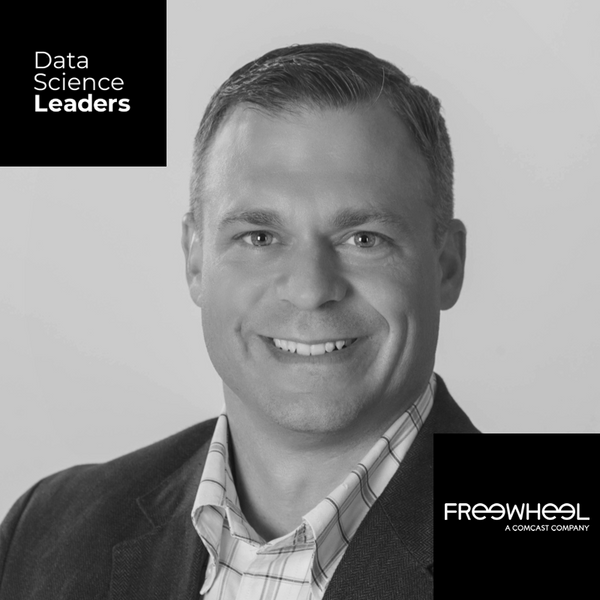episode 24
Why It Pays to Stand Out from the Crowd in Data Science
Data Science Leaders | 25:16 | October 20, 2021

Listen how you want
Get new episodes in your inbox
Talent is pouring into data science, even though it always seems like there’s not enough to meet demand. Learning opportunities for people getting into the field have exploded in just the past decade.
That means standing out from the crowd—both as a leader and as a practitioner—has become more important than ever before.
In this episode, Bob Bress, Head of Data Science at FreeWheel, explains how professionals at all levels can position themselves to win in a burgeoning market. Plus, he offers advice on how data science leaders can stimulate collaboration and intellectual curiosity within their organizations.
We discuss:
- How to stand out from your peers
- Intellectual curiosity, innovation, and collaboration in large organizations
- Being the CEO of the data science project you’re working on
Popular episodes

James Cham
Partner, Bloomberg Beta
EPISODE 71April 11, 2024
Unlocking the disruptive potential of generative AI: a VC perspective
Listen Now | 28:49
Volodimir Olexiouk
Director of Scientific Engagement and Data Science Team Lead, BioLizard
EPISODE 70March 28, 2024
Overcoming the data challenges of AI-driven drug discovery
Listen Now | 36:49
Rahul Todkar
Head of Data and AI, Tripadvisor